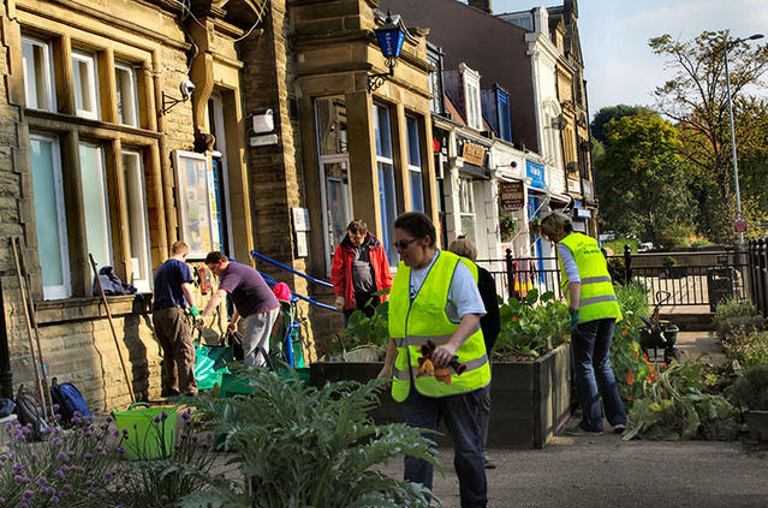Here’s the problem: The rapid expansion of cities is breaking the relationship that people have with the food ecosystem. Although the problem is receiving attention by some city officials, and they are adopting new sustainability programs and policies, it is a time-consuming, top-down process with an uncertain impact. What if with a bottom-up approach of small, local actions citizens can engage with could have a massive impact? Cities are centers of enormous energy and resources, and, by leveraging connections with friends, families, neighbors, and local community groups, it’s possible to create sustainable and affordable food systems.
Here’s how one organization is working on the problem: Back in 2007, a woman in a small town called Todmorden, in the northern part of England, dug up her prized rose garden. She planted vegetables, knocked down the garden wall, and put up a sign saying, “Help Yourself.”
This small action grew into a movement that has transformed Todmorden into a town in which citizens are reshaping their surroundings. The Incredible edible Todmorden movement has turned all the public spaces, from the front yard of a police station to railway stations, into farms filled with edible herbs and vegetables. Locals and tourists pluck fruits and vegetables for free.
This novel idea, which is also called “open-source food,” promises a future with food for all. The project shares a participatory vision of “three plates” — community, education, and business. Schools grow food, businesses donate goods and services, and shops sell planter boxes.
Results:
- As a result of the huge success of the project, the Incredible Edible Network was set up in 2012 to attract grant funding and support the replication of the project globally. There are now 100 Incredible Edible groups across the U.K. More are popping up all the time around the globe.
- The initiative has opened up a new marketplace for local farmers as well as the tourism industry.
- The movement has also fostered a sense of community and responsibility among the local residents, interaction and bonding among the neighbors, and connections with spaces like police stations, cemeteries, and prisons.
Learn more from:
This case study is adapted from our latest book, “Sharing Cities: Activating the Urban Commons.” Get a copy today.
This article is cross posted with permission from Shareable.net.





